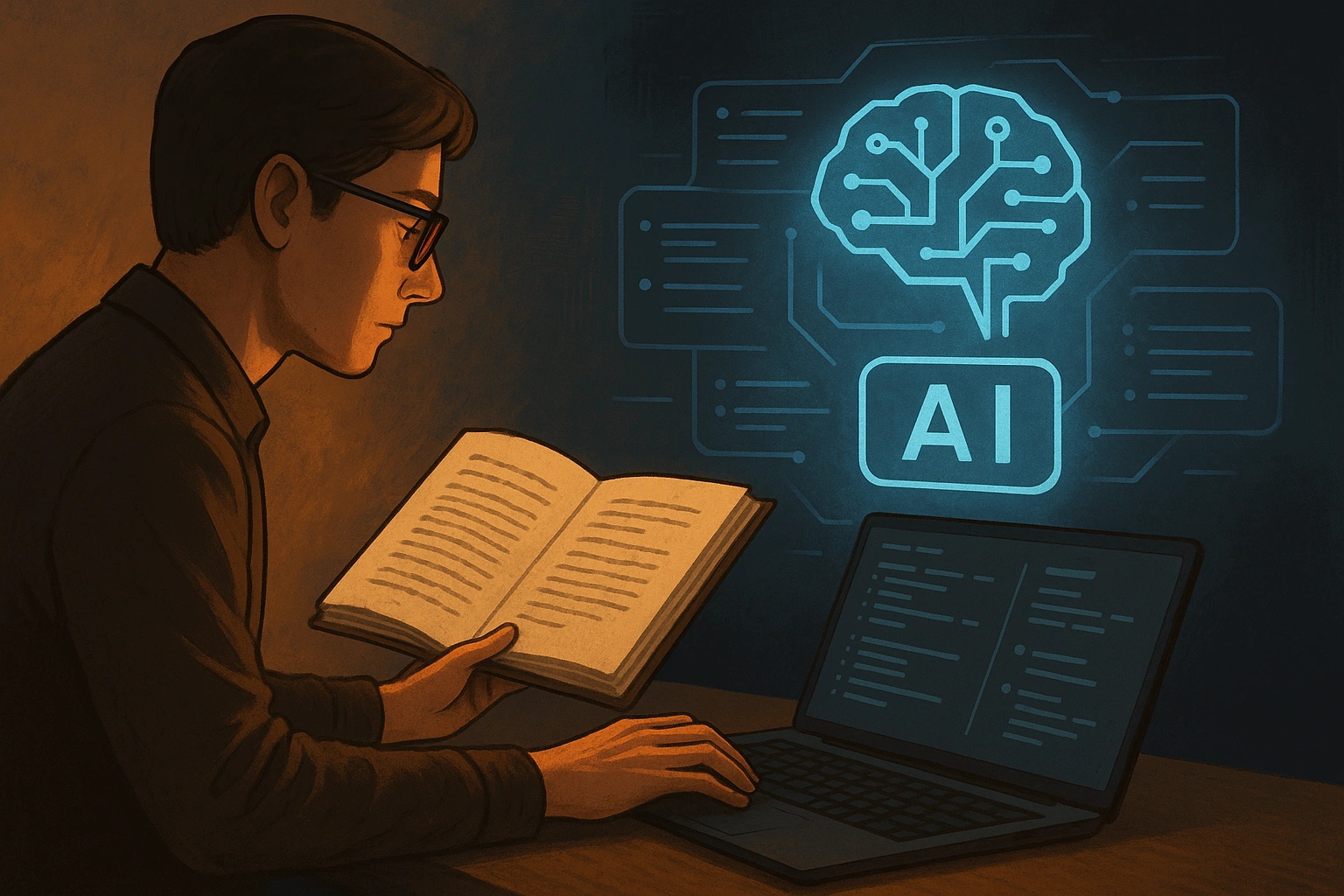The Future of AI in Academic Research
Much has been said about the impact of Artificial Intelligence (AI) on the way information is created, disseminated, and processed by people in the current day. With the speed at which AI has proliferated throughout the world, there is an urgent need to understand the long-term implications it holds for academia and research, particularly in the fields of political science and international relations. By critically analyzing the various uses of currently available AI models, it is quickly realized that this technology has been improperly framed as a replacement for human research when it should be perceived as a tool to make human research more efficient.
There are credible claims that the use of AI tools has deteriorating effects on critical thinking and reasoning skills, particularly amongst children and young adults, something that has become a serious problem in educational institutes. In the United States, many schools have switched back to pen and paper testing to avoid students cheating on their tests. Moreover, they have no way of preventing students from using ChatGPT and other language models to write essays for them. As a result, there is an urgent need to address the intersection of AI and academia and create a productive framework for how the two may interact in the future.
As AI models become more advanced, contemporary methods of detecting the use of AI in any piece of written work may become ineffective. Once this happens, it will enter an age wherein it will become impossible to distinguish between the words written by a language model and those written by an actual human being. While the first instinct may be to wonder “if it is indistinguishable from something written by a human, then isn’t it the same thing?”, by understanding the way that modern language models operate, an idea of why this line of thinking is problematic is admired.
Grok, is this true?
The problem the current state of AI presents, regarding the way people study and research various topics, is that, unlike humans who are capable of creativity, thinking critically, and utilizing various inputs and stimuli to arrive at new conclusions, LLMs can only mimic human behavior. As a result, it will never be effective at providing information regarding recent events. When you ask an LLM for an opinion, it does not think about it critically and give you a response based on its own assessment of a particular phenomenon. Rather, it scans the internet and produces an aggregate view based on the information it can find. It is fundamentally incapable of providing original insights or uncovering new information that hasn’t already been discussed elsewhere. As a result, because it relies on humans to critically analyze a phenomenon and write about it, thus providing it with data to train itself on, it is very ineffective at providing critical analysis about a phenomenon in real time. This highlights the absurdity of the “Grok, is this true?” trend witnessed on X (formerly Twitter) during the recent India-Pakistan and Israel-Iran conflicts.
In my opinion, the fear of AI replacing humans and taking their jobs are overblown. While some companies will undoubtedly do so, fueled by corporate greed, they will likely discover that this shift will significantly worsen the end-experience for users. Over time, users will begin to associate any usage of AI by large corporations as an indicator of poor quality of service, a phenomenon which has already begun to take shape. As a result, AI taking over jobs previously done by humans may be a short-lived phenomenon once business owners and investors realize that they cannot maintain the same outcomes without retaining the human element.
AI and Research
So, what does this tell us about the future of AI in academic research? AI is a very recent development and it will undoubtedly advance at a rapid pace, however, as it stands, the end-goal of AGI seems woefully out of reach. With the prospect of AI, in its current state, becoming a permanent part of the way information flows in the modern age, there is an urgent need to regulate its use, especially in academic and research related fields.
The future of AI in academia and research could be one of resistance and friction or it could be one of acceptance and integration. LLMs like ChatGPT are here to stay. Regardless of complaints by teachers and school administrators, students will continue to use these tools and will likely find work-arounds for any measures taken to restrict their use. So, would it not be more beneficial to begin training our youth to use AI, not as a tool for academic fraud, but rather as a means of conducting research at an exponentially quicker pace?
In my experience using ChatGPT to conduct research, it is borderline useless in terms of producing long-form writings. While it can produce grammatically coherent blocks of text which are well-organized and relevant to the prompt that was given, they cannot form original conclusions. As a result, it is simply impossible for them to completely replace human thinking entirely. What LLMs are exceptional at, however, is scanning vast repositories of data and presenting concise summaries of the information contained within. So, by carefully crafting prompts and asking them to include direct links to sources, LLMs can be used to conduct in-depth research at a rapid pace. In this sense, these models may point you in the right direction, but they won’t get you where you want to go.
AI is the future, but not the one Silicon Valley seems to believe it has created. AI will not be effective at taking over jobs previously done by humans. Rather, it will only serve as a tool that will allow humans to do their jobs more efficiently. Advances in AI over the next few years, such as the innovations of DeepSeek, will likely be focused more towards improving the accuracy of information depicted and reducing energy costs while an AGI that can truly think for itself will remain in the world of science fiction.








